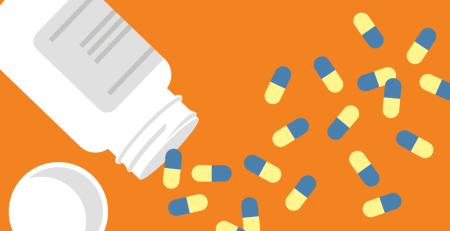Avoid These Mistakes While Taking a Decongestant
- Common Decongestants: Pseudoephedrine (Sudafed), phenylephrine (Sudafed PE, Neo-Synephrine), and oxymetazoline (Afrin) are over-the-counter options for relieving nasal congestion.
- Usage Limits: Oral decongestants should not be used for more than 7 days, and nasal sprays like Afrin for no more than 3 days to avoid rebound congestion.
- Avoid These Mistakes: Do not combine decongestants with alcohol, other stimulants, or take them before bed. Doubling up on decongestants increases side effect risks.
- Stimulants to Avoid: Combining decongestants with stimulants like caffeine, amphetamine salts (Adderall), methylphenidate (Ritalin), or phentermine (Adipex-P) can cause dangerous side effects such as irregular heartbeats or high blood pressure.
- Consult Professionals: Always check with a pharmacist or healthcare provider for safe use, especially if taking other medications or if symptoms persist.
A stuffy nose from a cold, flu, or allergies can be bothersome, but over-the-counter (OTC) decongestants like pseudoephedrine (Sudafed), phenylephrine (Sudafed PE, Neo-Synephrine), and oxymetazoline (Afrin) offer quick relief. However, improper use can lead to side effects or reduced effectiveness. Below, we outline five common mistakes to avoid when using decongestants, including a detailed list of stimulants to avoid combining with them.
Note: In 2023, FDA experts concluded that oral phenylephrine is not effective for nasal congestion based on current evidence. However, it is not harmful, and phenylephrine nasal sprays remain effective.
1. Drinking Alcohol While Taking Decongestants
Combining alcohol with decongestants like pseudoephedrine or phenylephrine can worsen side effects such as nausea, headache, and anxiety, as both substances share similar side effects. Decongestants may also mask alcohol’s effects, leading to overconsumption and increasing the risk of harm. Alcohol can further weaken your immune system, slowing recovery from infections, and histamines in some alcoholic beverages (e.g., wine, beer) may worsen allergy-related congestion.
- Recommendation: Avoid alcohol while taking decongestants. Wait at least 24 hours after your last dose of pseudoephedrine (which takes 15–80 hours to clear) or phenylephrine (cleared in about 15 hours) before drinking. Consult a healthcare professional if you struggle to avoid alcohol.
2. Taking Decongestants Longer Than Recommended
Prolonged use of decongestants can lead to serious risks, depending on the type:
- Rebound Congestion: Nasal sprays like oxymetazoline (Afrin) can cause worsening congestion if used for more than 3 days consecutively.
- Cardiovascular Risks: Oral decongestants like pseudoephedrine can increase blood pressure and heart rate, posing risks for those with heart conditions.
- Dependence and Misuse: Pseudoephedrine can be habit-forming and is regulated due to its potential use in producing illegal stimulants. It’s kept behind pharmacy counters with purchase limits in many regions.
- Guidelines:
- Cold/Flu: Use oral decongestants for up to 7 days. Consult a healthcare provider if symptoms persist, worsen, or include a fever.
- Allergies: For long-term allergy relief, consider steroid nasal sprays like fluticasone (Flonase) instead of oral decongestants.
3. Taking Decongestants Before Bed
Decongestants, especially pseudoephedrine, have stimulant effects that can disrupt sleep if taken close to bedtime. This is why they are typically included in “daytime” cold and flu formulas but omitted from “nighttime” versions.
- Recommendation: Avoid taking decongestants after 6 PM or within a few hours of bedtime. If using extended-release (ER) pseudoephedrine (lasting 12–24 hours), consider switching to an immediate-release (IR) version for better sleep.
4. Doubling Up on Decongestants
Taking multiple decongestants (e.g., pseudoephedrine and Afrin together) or exceeding the recommended dose increases the risk of side effects like headache, restlessness, and nausea without improving relief. Decongestants are often hidden in multi-symptom products (e.g., Theraflu), so always check labels to avoid accidental overdosing.
- Maximum Doses (for ages 12+):
- Pseudoephedrine: 240 mg per 24 hours.
- Phenylephrine: 60 mg per 24 hours.
- Lower doses apply for children under 12.
- Overdose Signs: Fast/irregular heartbeat, difficulty breathing, dizziness. Seek immediate medical help or call 911 if these occur.
- Tip: Consult a pharmacist to confirm safe dosages and identify decongestants in combination products.
5. Combining Decongestants with Other Stimulants
Decongestants have stimulant properties that can dangerously amplify the effects of other stimulants, leading to irregular heartbeats or very high blood pressure. This is particularly risky for older adults or those with heart conditions.
- Common Stimulants to Avoid:
- Prescription Stimulants:
- Amphetamine salts (Adderall)
- Methylphenidate (Ritalin, Concerta)
- Phentermine (Adipex-P)
- Modafinil (Provigil)
- OTC Stimulants:
- Caffeine (found in coffee, tea, energy drinks, sodas, and some OTC medications like Excedrin)
- Ephedrine (in some weight-loss or energy supplements)
- Illicit Stimulants (avoid entirely):
- Cocaine
- Methamphetamine
- Prescription Stimulants:
- Recommendation: Consult your healthcare provider before combining decongestants with any stimulant. They may suggest alternatives like saline nasal sprays or antihistamines for congestion relief.
Frequently Asked Questions
Can You Take Decongestants with Antibiotics?
In most cases, yes. Decongestants typically do not interact with antibiotics. However, avoid combining decongestants with linezolid (Zyvox), as it can cause dangerously high blood pressure.
What Are Safer Alternatives to Decongestants?
If decongestants are unsuitable (e.g., due to heart conditions or stimulant use), consider:
- Saline nasal sprays: Hydrate and clear nasal passages without side effects.
- Steroid nasal sprays (e.g., Flonase): Effective for allergy-related congestion.
- Antihistamines: Useful for allergy-induced congestion (e.g., cetirizine, loratadine).
Decongestants like pseudoephedrine (Sudafed), phenylephrine (Sudafed PE, Neo-Synephrine), and oxymetazoline (Afrin) can effectively relieve nasal congestion when used correctly. Avoid common mistakes like combining them with alcohol or stimulants, taking them before bed, doubling up, or using them longer than recommended (7 days for oral, 3 days for nasal sprays). Always follow label instructions and consult a pharmacist or healthcare provider for personalized advice to ensure safe and effective use.









